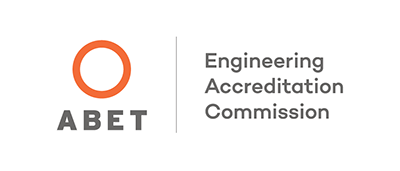ACCREDITATION
The BS program in Petroleum Engineering (PE) is accredited by the Engineering Accreditation Commission of ABET, www.abet.org.

Mission and Vision
The mission of the Petroleum Engineering Program is as follows:
PetroVietnam University (PVU) specializes in training high-quality human resources, combining training with scientific research and production and business practices in order to contribute to the sustainable development of the Vietnam Oil and Gas Group (PVN) and the Country, conducting social responsibilities and community service.
In the long term, PVU is a multi-disciplinary university, combining with Vietnam Petroleum Institute (VPI) to establish Vietnam Petroleum Academy. Its training majors are career-and-application oriented with high quality, a potential for scientific research at regional and international levels. The university combines training with production and scientific research. It also has extensive and diversified international cooperation, and a competitive capacity for development and integration with a commitment to meet the demands of domestic and international enterprises for human resources.
PVU strives to become one of the prestigious petroleum universities in South East Asia by 2035
Program Educational Objectives
The GE Program prepares students with knowledge and skills so that they can go to work immediately after graduation or continue their higher academic qualifications. We expect our graduates, after a certain time (from 3 to 5 years), can achieve the program educational objectives as follows:
- Be practical, employable and qualified geological engineers in professional careers as practicing petroleum geophysicists engaged in exploration and development activities associated with the production of oil and gas reserves;
- Continue their professional development and become professional managers for enterprises of Vietnam Oil and Gas Group, multinational companies, and/or become scientists for research institutes and universities;
- Keep their education up to date through self-instruction and other training to meet the challenges of the competitive, modern and dynamic workplace.
Student Outcomes
The student outcomes of our Geological Engineering Program are the same as those required by ABET for any engineering program to receive accreditation. The Geological Engineering graduates will have:
- an ability to identify, formulate, and solve complex engineering problems by applying principles of engineering, science, and mathematics
- an ability to apply engineering design to produce solutions that meet specified needs with consideration of public health, safety, and welfare, as well as global, cultural, social, environmental, and economic factors
- an ability to communicate effectively with a range of audiences
- an ability to recognize ethical and professional responsibilities in engineering situations and make informed judgments, which must consider the impact of engineering solutions in global, economic, environmental, and societal contexts
- an ability to function effectively on a team whose members together provide leadership, create a collaborative and inclusive environment, establish goals, plan tasks, and meet objectives
- an ability to develop and conduct appropriate experimentation, analyze and interpret data, and use engineering judgment to draw conclusions
- an ability to acquire and apply new knowledge as needed, using appropriate learning strategies.
GE Program Criteria
The current Geological Engineering Program Criteria includes requirements.
The curriculum must include:
- mathematics including differential equations, calculus-based physics and chemistry, with application to geological engineering problems.
- geological science topics that emphasize geologic processes and the identification of minerals and rocks.
- visualization of and solutions to geological problems in three and four dimensions.
- engineering sciences including statics, properties/strength of materials and geomechanics.
- principles of geology, elements of geophysics, geological and engineering field methods.
- geological engineering design problems which must include one or more of the following considerations:
- i.the distribution of physical and chemical properties of earth materials, including surface water, ground water (hydrogeology) and fluid hydrocarbons.
- ii.the effects of surface and near-surface natural processes.
- iii.the impacts of construction projects.
- iv.the impacts of exploration, development and extraction of natural resources, and consequent remediation; disposal of wastes; and other activities of society on these materials and processes, as appropriate to the program objectives.
Annual Student Enrollment and Graduation Data
GE Enrollment Data
| Academic Year | Enrollment Year | Degrees Awarded | ||||
| 1st | 2nd | 3rd | 4th | Bachelors | ||
| 2021-2022 | FT | 48* | 6 | 8 | - | |
| 2020-2021 | FT | 54* | 8 | - | 4 | 3 |
| 2019-2020 | FT | 58* | - | 5 | 6 | 3 |
* The total number of students of the 3 programs (Geological Engineering, Petroleum Engineeering, Chemical Engineering). After the first academic year, the students will choose their majors.
FT: Full time
